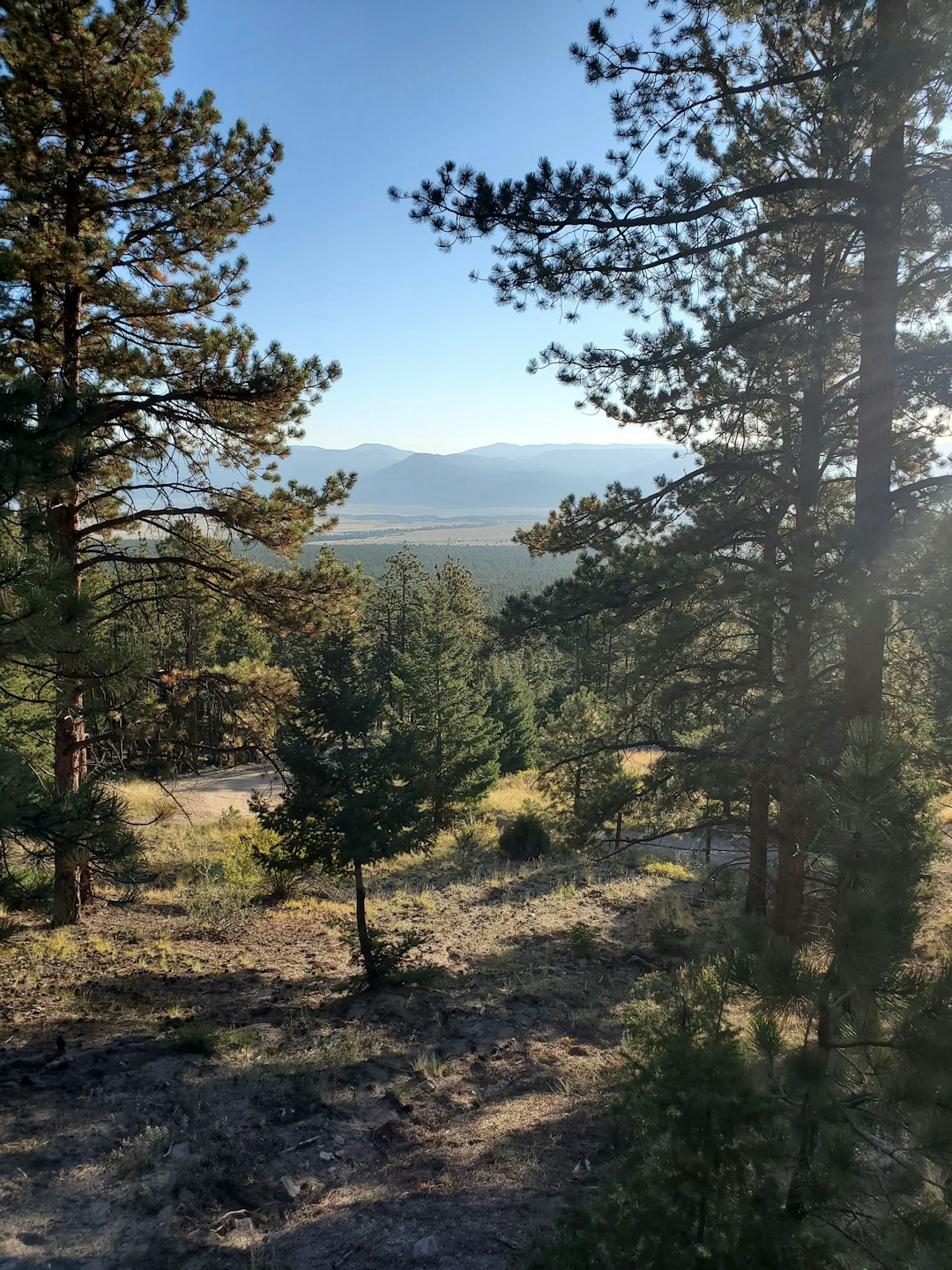

As a landowner looking to sell Tennessee land for cash, it is crucial to understand the current market trends and demand in order to make informed decisions.
One key factor to consider is the location of the land. Areas experiencing high population growth or economic development are likely to have a higher demand for land sales. In Tennessee, cities like Nashville and Chattanooga are seeing rapid growth, making them attractive markets for land sales.
Another important aspect to analyze is the type of land being sold. Factors such as zoning regulations, topography, and access to utilities can greatly impact the desirability and value of the land. For example, agricultural land may be more sought after in certain regions compared to residential or commercial properties.
Furthermore, staying up-to-date on market trends can help sellers determine the best time to list their property. Monitoring factors such as interest rates, housing market conditions, and overall economic health can provide valuable insights into when demand for Tennessee land sales may be highest.
It is also beneficial for sellers to work with real estate professionals who specialize in Tennessee land sales. These experts can provide valuable guidance on pricing strategies, marketing techniques, and negotiating deals that align with current market trends and demand.
In conclusion, by staying informed about market trends and understanding the demand for Tennessee land sales, sellers can maximize their chances of securing a profitable deal. Being proactive and adaptable in response to changing market conditions will ultimately lead to successful transactions in the competitive real estate industry.
When selling Tennessee land for cash, there are several important steps to take to ensure a smooth transaction.
Research the Market: Before listing your land for sale, research the current market conditions in Tennessee. Consider factors such as recent sales prices, demand for land in your area, and any zoning regulations that may affect the value of your property.
Determine the Value of Your Land: To determine a fair asking price for your land, consider hiring a professional appraiser to assess its value. An accurate appraisal will help you attract serious buyers and negotiate a favorable deal.
Prepare the Property: Before listing your land for sale, make sure it is ready for potential buyers to view. Clear any debris or trash, maintain landscaping, and address any necessary repairs or improvements to enhance its appeal.
Hire a Real Estate Agent: Consider hiring a real estate agent with experience selling land in Tennessee. An agent can help you market your property effectively, negotiate offers on your behalf, and navigate any legal considerations that may arise during the sale process.
Understand Legal Considerations: When selling Tennessee land for cash, be aware of any legal considerations that may impact the sale. These include property taxes, zoning restrictions, boundary disputes, and any existing liens or encumbrances on the property.
Complete Necessary Paperwork: To finalize the sale of your land, you will need to complete various paperwork including a purchase agreement, deed of conveyance, and any other legal documents required by Tennessee law. Consult with a real estate attorney to ensure all paperwork is completed accurately and in compliance with state regulations.
Close the Sale: Once you have negotiated an acceptable offer with a buyer and completed all necessary paperwork, it's time to close the sale. During closing, funds will be transferred from the buyer to you as the seller, and ownership of the land will officially transfer to the new owner. Congratulations on successfully selling your Tennessee land!
Tennessee (/ˌtɛnɪˈsiː/, locally /ˈtɛnɪsi/), officially the State of Tennessee, is a landlocked state in the Southeastern region of the United States. It borders Kentucky to the north, Virginia to the northeast, North Carolina to the east, Georgia, Alabama, and Mississippi to the south, Arkansas to the southwest, and Missouri to the northwest. Tennessee is the 36th-largest by area and the 15th-most populous of the 50 states. Tennessee's population as of the 2020 United States census is approximately 6.9 million.
Tennessee is geographically, culturally, and legally divided into three Grand Divisions of East, Middle, and West Tennessee. Nashville is the state's capital and largest city, and anchors its largest metropolitan area. Tennessee has diverse terrain and landforms, and from east to west, contains a mix of cultural features characteristic of Appalachia, the Upland South, and the Deep South. The Blue Ridge Mountains along the eastern border reach some of the highest elevations in eastern North America, and the Cumberland Plateau contains many scenic valleys and waterfalls. The central part of the state is marked by cavernous bedrock and irregular rolling hills, and level, fertile plains define West Tennessee. The state is twice bisected by the Tennessee River, and the Mississippi River forms its western border. The Great Smoky Mountains National Park, the nation's most visited national park, is in eastern Tennessee.
Tennessee is rooted in the Watauga Association, a 1772 frontier pact generally regarded as the first constitutional government west of the Appalachian Mountains. Its name derives from Tanasi (ᏔᎾᏏ), a Cherokee town preceding the first European American settlement. Tennessee was initially part of North Carolina, and later the Southwest Territory, before its admission to the Union as the 16th state on June 1, 1796. It earned the nickname "The Volunteer State" due to a strong tradition of military service. A slave state until the American Civil War, Tennessee was politically divided, with most of its western and middle parts supporting the Confederacy, and most of the eastern region harboring pro-Union sentiment. As a result, Tennessee was the last state to officially secede from the Union and join the Confederacy, and the first former Confederate state readmitted to the Union after the war had ended during the Reconstruction era.

Selling Tennessee land for cash can be a smooth and rewarding process if done correctly.. There are several steps involved in this process that we will walk you through to ensure a successful sale.
Posted by on 2024-09-30

If you're looking to sell your Tennessee land for cash and make some quick money today, you're in luck!. There are several ways you can go about selling your property quickly and easily.
Posted by on 2024-09-30

When it comes to selling Tennessee land for cash, the value can vary greatly depending on a number of factors. One of the biggest factors that will determine the value of your land is its location.. Land that is located in highly desirable areas, such as near major cities or tourist attractions, will typically fetch a higher price than land that is located in more remote or less desirable areas.
Posted by on 2024-09-30

Selling land in Tennessee for cash can be a great way to make a profit, but finding buyers can sometimes be a challenge.. However, there are several effective strategies that you can use to attract potential buyers and close the deal quickly.
Posted by on 2024-07-10
Listing the Property To start the process of selling Tennessee land for cash, the first step is to list your property for sale. You can choose to work with a real estate agent or list the property yourself on online platforms such as Zillow or Realtor.com.
Determining the Value Before listing your Tennessee land for sale, it is important to determine its value. You can hire a professional appraiser or research comparable properties in the area to get an idea of how much your land is worth.
Marketing the Property Once your Tennessee land is listed for sale and its value has been determined, it's time to market the property. This includes creating attractive listings with detailed descriptions and high-quality photos to attract potential buyers.
Negotiating Offers When offers start coming in for your Tennessee land, you will need to negotiate with potential buyers. It's important to consider factors such as price, closing date, and any contingencies that may be included in the offer.
Closing the Sale After accepting an offer on your Tennessee land, the next step is closing the sale. This typically involves signing legal documents, transferring ownership of the property, and receiving payment from the buyer.
Receiving Cash Payment Once all necessary paperwork has been signed and filed, you will receive payment for your Tennessee land in cash. This marks the successful completion of the process of selling your land for cash in Tennessee.


When you decide to sell your Tennessee land for cash, there are several factors that will determine the value of your property.
Location: The location of your land plays a significant role in determining its value. Factors such as proximity to amenities, schools, highways, and other attractions can greatly impact the price you can fetch when selling for cash.
Size and Zoning: The size of your land parcel and its zoning classification also play a crucial role in determining its value. Larger parcels of land typically command higher prices, especially if they are zoned for residential or commercial development.
Market Conditions: The current market conditions in Tennessee can also influence the value of your land when selling for cash. Factors such as supply and demand, interest rates, and economic trends can all impact the price you can expect to receive.
Development Potential: If your land has development potential - whether it's for residential, commercial, or industrial purposes - this can significantly increase its value when selling for cash. Buyers may be willing to pay a premium for land that has the potential for future development.
Consulting with Real Estate Professionals: To get an accurate assessment of the value of your Tennessee land when selling for cash, it is advisable to consult with real estate professionals who have experience in the local market. They can provide you with insights into current market trends, comparable sales data, and help you determine a fair asking price for your property.
One effective method to find buyers for Tennessee land is to work with a real estate agent who specializes in land sales. These professionals have the knowledge and expertise to market your property effectively and connect you with potential buyers.
Utilizing online listing platforms such as Zillow, LandWatch, and Land And Farm can also help you reach a larger audience of buyers. By creating detailed listings with quality photos and descriptions, you can attract interested parties to your Tennessee land.
Networking within the local community and attending real estate events or trade shows can be another successful way to find potential buyers for your land. Building relationships with other industry professionals and investors may lead to valuable connections.
Consider advertising your Tennessee land for sale through targeted marketing efforts such as social media ads or Google AdWords campaigns. This can help you reach individuals who are specifically looking to purchase land in Tennessee.
Hosting open houses or property tours can give prospective buyers the opportunity to see the land in person and envision its potential uses. Providing information about zoning regulations, utilities, and any existing structures on the property can help attract serious buyers.
Partnering with local developers or builders who are looking for land opportunities in Tennessee can also be a fruitful approach. These professionals may be seeking new projects and could be interested in purchasing your land for development purposes.
Lastly, don't underestimate the power of word-of-mouth marketing when trying to sell Tennessee land. Spread the word among friends, family, colleagues, and acquaintances that you have property available for sale – you never know who might know someone looking to buy land in Tennessee.


When selling Tennessee land for cash, there are several legal documents that you will need to have in order to complete the transaction smoothly.
Title Deed: The most important document you will need when selling Tennessee land is the title deed. This document proves that you are the legal owner of the property and have the right to sell it.
Property Survey: A property survey is another essential document needed when selling land in Tennessee. This document outlines the boundaries of the property and any easements or encroachments that may exist.
Tax Records: It is also important to have up-to-date tax records for the property you are selling. This includes information on any outstanding taxes or liens that may be attached to the land.
Bill of Sale: In addition to the title deed, you will also need a bill of sale when selling Tennessee land for cash. This document details the terms of the sale, including the purchase price and any conditions of the sale.
Disclosure Forms: Tennessee law requires sellers to provide certain disclosure forms to buyers when selling property. These forms include information on known defects, environmental hazards, and other issues that may affect the value of the land.
Closing Documents: Finally, you will need various closing documents when completing the sale of Tennessee land for cash. These documents include a settlement statement, transfer of ownership forms, and any other paperwork required by state law or local regulations.
When selling Tennessee land for cash, there are several potential tax implications that sellers should consider.
Capital Gains Tax: Selling land for a profit may result in capital gains tax. The amount of tax owed will depend on how long the property was owned and the seller's individual tax situation. It is important to consult with a tax professional to understand the specific implications.
Depreciation Recapture: If the land was used for business or rental purposes, depreciation may have been taken on the property. When selling the land, any depreciation that was previously claimed must be recaptured and reported as income on the seller's tax return.
State and Local Taxes: In addition to federal taxes, sellers must also consider state and local taxes when selling Tennessee land for cash. Each state has its own tax laws regarding real estate transactions, so it is essential to research and understand these obligations.
1031 Exchange: One way to potentially defer paying capital gains tax on the sale of Tennessee land is through a 1031 exchange. This allows sellers to reinvest the proceeds from the sale into another like-kind property within a certain timeframe, thus deferring taxes until a later date. It is crucial to follow strict guidelines set forth by the IRS when considering this option.

You will likely need a copy of your deed, survey maps, and any relevant permits or approvals for potential buyers.
You can negotiate the price with buyers but keep in mind that it should be within a reasonable range based on market value.
Research recent sales of similar properties in your area or consult with a real estate agent for a professional appraisal.